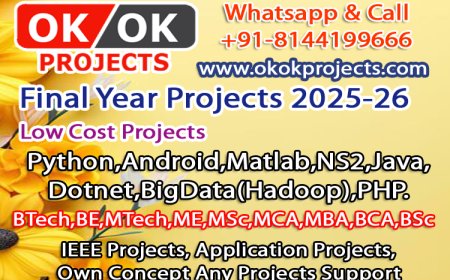Zomato Restaurant Reviews Sentimental Analyzer in Python Projects
Zomato Restaurant Reviews Sentimental Analyzer in Python Projects
Zomato Restaurant Reviews Sentimental Analyzer in Python Projects
Abstract
Online reviews play a significant role in influencing customer decisions and business growth in the food industry. The project Zomato Restaurant Reviews Sentiment Analyzer in Python Projects focuses on developing an intelligent system that analyzes restaurant reviews from Zomato to determine customer sentiment, categorizing them as positive, negative, or neutral. Python is chosen as the development platform due to its powerful libraries for text processing, natural language processing (NLP), and machine learning, including Pandas, NumPy, NLTK, SpaCy, Scikit-learn, and TensorFlow. The system collects reviews from the Zomato platform, preprocesses the text by removing noise, tokenizing, and normalizing, and applies machine learning or deep learning models to predict sentiment. This automated sentiment analysis helps restaurant owners understand customer feedback, improve service quality, and enhance customer satisfaction.
Existing System
Existing systems for sentiment analysis primarily rely on manual review of feedback or simple keyword-based methods, which are time-consuming, subjective, and limited in accuracy. Some automated approaches use traditional machine learning models like Naive Bayes or Logistic Regression, but these methods often struggle with understanding context, sarcasm, or complex linguistic patterns in text. Additionally, existing systems may not scale efficiently for large datasets of reviews, limiting their effectiveness for real-time analysis and actionable insights. As a result, current approaches are often insufficient for comprehensive and reliable sentiment evaluation.
Proposed System
The proposed system introduces a Python-based framework for Zomato restaurant review sentiment analysis using NLP and machine learning techniques. Text preprocessing includes tokenization, stop-word removal, lemmatization, and vectorization using methods such as TF-IDF, Word2Vec, or transformer-based embeddings like BERT. Machine learning models such as Random Forest, Support Vector Machines (SVM), or deep learning models including LSTM, CNN, or hybrid architectures are trained to classify reviews into positive, negative, or neutral sentiments. The system evaluates model performance using metrics like accuracy, precision, recall, F1-score, and confusion matrices. By integrating advanced NLP techniques and predictive modeling, the system provides a scalable, automated, and accurate solution for analyzing customer sentiment, enabling restaurant owners to make data-driven decisions, enhance service quality, and improve customer experience.
What's Your Reaction
 Like
0
Like
0
 Dislike
0
Dislike
0
 Love
0
Love
0
 Funny
0
Funny
0
 Angry
0
Angry
0
 Sad
0
Sad
0
 Wow
0
Wow
0































